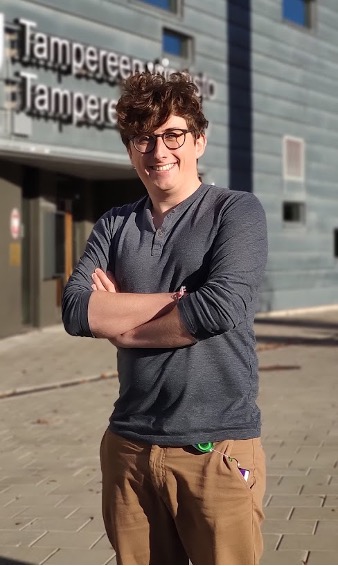 My name is Antoine GRENIER, I am working in the APROPOS project as a Doctoral Researcher since October 2021. As a quick background presentation, I am originally from France, where I received my master engineering diploma in Geomatics from the Ecole Supèrieure des Géomètres et Topographes (ESGT) in 2019. Afterwards, I worked in the European Space Agency (ESTEC, Netherlands) in the Galileo System Engineering section for two years. I was involved in multiple projects, going from precise positioning techniques, as well as the development of a possible satellite constellation around the Moon called LCNS.
My name is Antoine GRENIER, I am working in the APROPOS project as a Doctoral Researcher since October 2021. As a quick background presentation, I am originally from France, where I received my master engineering diploma in Geomatics from the Ecole Supèrieure des Géomètres et Topographes (ESGT) in 2019. Afterwards, I worked in the European Space Agency (ESTEC, Netherlands) in the Galileo System Engineering section for two years. I was involved in multiple projects, going from precise positioning techniques, as well as the development of a possible satellite constellation around the Moon called LCNS.
My research interests largely revolve around satellite positioning, as well as geodesy and reference systems. As you may have guessed, I am also a big space nerd and love anything related to space exploration. Beside work my hobbies include computer programming, climbing and hiking.
The precise title of my PhD thesis is “Approximation techniques for low-cost GNSS receivers” (ESR11). This contains many critical terms that can be easily explained:
- Approximation techniques: Studying a process to find approximations, points where we can simplify the computations to reduce the processing load. This will result in a lower energy consumption, but at the cost of poorer precision. The goal is to analyze where this tradeoff is the most advantageous without impacting the computations’ precision beyond the user requirements.
- GNSS receiver: An embedded system that can make a positioning out of signals from satellites orbiting in space. GNSS stands for Global Navigation Satellite System and is the general term regrouping the different navigation constellations around the world. The most famous one is the GPS from the USA, but several others exist, like Galileo (EU), GLONASS (Russia), BeiDou (China), etc…
This project therefore aims for developing a low-power GNSS receiver, while studying the impact of Approximate Computing (AxC) concepts in its process chain. Moreover, the cost of such a system will be evaluated to be as accessible as possible.
I am very happy to be part of the APROPOS project and to work on this thesis, as I have always been interested in low-cost GNSS receivers since I started my geomatic studies. This will give me the opportunity to dive further in the world of Digital Signal Processing and computer engineering, yet another subject of interest for me. At the same time, I will be applying my knowledge in satellite navigation, and link all those research areas.

